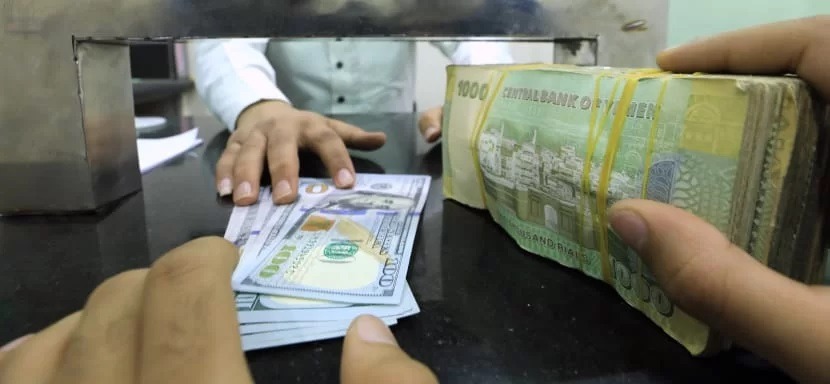
Barran Press
Seventeen deputy governors from six Yemeni provinces have denied receiving government "living expenses" that have sparked widespread controversy on social media platforms. The denial came in a statement signed by the officials on Saturday, July 20, 2024.
The statement, which was sent to "Barran Press," addressed the circulating discussions on social media about the "living expenses" and the names of beneficiaries receiving them in hard currency.
The deputy governors, representing the provinces of Sana'a, Dhamar, Amran, Hajjah, Al Bayda, and Reima, stated that their names were not included in any lists for receiving "living expenses" or other allowances in either hard currency or local currency. They also emphasized the falsity of rumors claiming that 220 deputy governors received a monthly allowance of $4,500 USD each.
The officials called on the Presidential Leadership Council, the government, and the Central Bank leadership to cancel any monthly financial allowances, allocations, or grants provided to state leaders residing outside the country, with the exception of ambassadors, diplomatic staff, and students studying abroad.
They also demanded a ban on the disbursement of salaries, wages, or expenses for senior state officials in US dollars or any other foreign currency. They advocated for limiting the disbursement of any financial allocations to the Yemeni riyal and within the country, applying this to all state employees in both the central and local authorities.
Furthermore, the deputy governors urged the unification of salaries for all state employees in both the civilian and military sectors, ensuring their settlement, approving annual bonuses, and implementing them according to regulations and laws related to salaries and wages. They emphasized the need to consider the difficult economic and living conditions faced by most Yemenis.
The officials reiterated their full support for the decisions and measures taken by the Governor of the Central Bank aimed at reforming the economic system and regaining control over the banking sector. They stressed the importance of implementing these measures, working towards unifying the national currency, restoring its value, and achieving social justice among all citizens of the Republic of Yemen.
The deputy governors called on media outlets, journalists, and social media activists to exercise accuracy and objectivity in reporting information and to avoid spreading rumors. They urged the relevant official authorities to transparently respond and clarify all issues raised regarding the so-called "living expenses" and to assume full responsibility for any corruption or discrimination that has occurred or is ongoing amidst the crucial struggle.
The statement was signed by:
- Abdulkarim Thua'il, Deputy Governor of Sana'a
- Abdulkhaleq Al-Jandabi, Deputy Governor of Sana'a
- Ali Ahmad Al-Hamidi, Deputy Governor of Sana'a
- Ayadh Assdan, Deputy Governor of Sana'a
- Adel Al-Sabry, Deputy Governor of Sana'a
- Shadi Khusruf, Deputy Governor of Sana'a
- Abdul-Ilah Abu Ghanem, Deputy Governor of Sana'a
- Mohammed Ma'awda, Deputy Governor of Dhamar
- Fadhl Al-Harbi, Deputy Governor of Dhamar
- Khaled Badr Al-Din, Deputy Governor of Amran
- Walid Al-Lahim, Deputy Governor of Amran
- Abdulkarim Hermes, Deputy Governor of Hajjah
- Nasser Da'qin, Deputy Governor of Hajjah
- Ahmad Al-Jubali, Deputy Governor of Hajjah
- Zaid Arjash, Deputy Governor of Hajjah
- Ahmad Al-Hatam, Deputy Governor of Al Bayda
- Mohammed Al-Asl, Deputy Governor of Reima
This statement follows revelations by the head of the Yemeni National Bank (government-owned), Mohammed Haloub, in mid-July, about significant expenses incurred by the government for state leaders residing abroad who do not hold any governmental positions. This comes at a time when most Yemenis within the country are facing unprecedented deterioration in services and a drastic increase in poverty and hunger indicators.
Haloub, in an interview with Aden Al-Ghad radio, stated that the internationally recognized Yemeni government spends $12 million USD monthly on "living expenses" for officials abroad, many of whom are inactive, hold no official titles, and do not engage in any governmental activities. However, they receive monthly allowances ranging from $8,000 USD to $3,000 USD.
The government official explained that this "living expenses" budget constitutes 25% of the state's budget.
The "living expenses" list encompasses members of the legitimate authority residing abroad (excluding diplomatic personnel) and includes regular monthly financial allowances paid to them in hard currency (US dollars and Saudi riyals), in addition to salaries received from the city of Aden, declared as the temporary capital of the country.
Earlier, a research paper published by the Mukha Center for Studies revealed that the number of officials benefiting from the "living expenses" list reaches thousands, including some expatriates and individuals with no prior work experience in the government sector, both civilian and military.
The paper highlighted that the continuation of the "living expenses" list in its current form contributes to prolonging the war. It explained that those residing abroad and receiving substantial salaries would not be interested in resolving the situation or the return of the legitimate authority to the country, as this would deprive them of the significant financial amounts they receive under the pretext of being forced to live abroad.
Recently, social media platforms witnessed widespread outrage over the continued expenditure by the internationally recognized Yemeni government on substantial amounts of hard currency for officials abroad, while simultaneously engaging in an economic war to protect the banking sector and prevent the collapse of the local currency. People are demanding the cancellation of these expenditures as part of government reforms.





